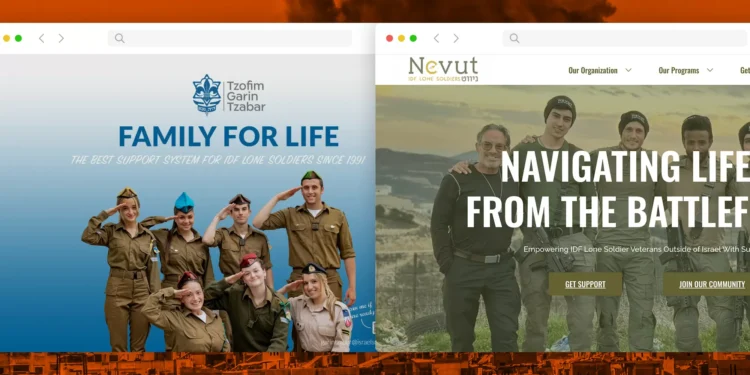Over the past decade, the Israeli military has faced increasing challenges in maintaining its manpower due to various reasons such as budget constraints and a decreasing number of volunteers. In response to this, the Israeli government has turned to a somewhat controversial solution – recruiting American teens through lone soldier programs.
These programs, run by non-profit organizations, aim to recruit young American Jews to serve in the Israeli Defense Forces (IDF) as “lone soldiers” – meaning they have no immediate family in Israel. The idea is to provide reinforcements to the Israeli military during its ongoing conflict with Palestine, particularly in the Gaza Strip.
This practice has recently come under scrutiny for its ethical implications and its role in perpetuating the ongoing violence in the region. In an article published by The Intercept, it was revealed that these lone soldier programs have been receiving millions of dollars in funding from U.S. non-profits, further fueling the controversy surrounding this issue.
The Israeli government and its supporters argue that these programs offer a unique opportunity for young Jews to connect with their roots and contribute to the safety and security of the state of Israel. They also claim that these programs are completely voluntary and provide valuable support to the Israeli military.
However, the reality of the situation is far more complex. The majority of these lone soldiers are recruited from privileged backgrounds in the United States and are often not fully aware of the gravity of the conflict they are entering into. Many of them are also minors, who are being sent to a war zone without the consent of their parents.
Moreover, the IDF has been accused of committing human rights violations and war crimes in its ongoing conflict with Palestine. By sending American teens to serve in this military, these lone soldier programs are essentially supporting and enabling the Israeli government’s actions in the region.
The Intercept’s investigation revealed that these non-profits have been funneling millions of dollars to these lone soldier programs, which are then used to provide financial incentives to the recruits. This raises serious questions about the true motivations behind these programs – are they truly driven by a desire to support Israel, or are they profiting off the ongoing violence and conflict in the region?
One of the most concerning aspects of these programs is the lack of transparency and accountability. The Intercept’s investigation found that these non-profits often mislead donors about where their money is being allocated, and there is little oversight on how the funds are being used. This raises concerns about the potential misuse of funds and whether they are being used to support illegal actions by the IDF.
As American citizens, we must also question the role of our government in this situation. The U.S. provides billions of dollars in military aid to Israel every year, and the fact that some of this aid is being funneled to these lone soldier programs is deeply concerning. It is our responsibility to hold our government accountable and demand transparency in how our tax dollars are being used.
We must also question the impact of these programs on the young recruits themselves. Many of them may return home with physical and psychological trauma from their time in the military, and some may even become desensitized to violence and human suffering.
In conclusion, lone soldier programs that recruit American teens to serve in the Israeli military during its ongoing conflict in Gaza are highly problematic and raise serious ethical concerns. They perpetuate the cycle of violence in the region, exploit young and vulnerable recruits, and lack transparency and accountability. As a global community, we must demand an end to these programs and seek peaceful solutions to the ongoing conflict in the region.






